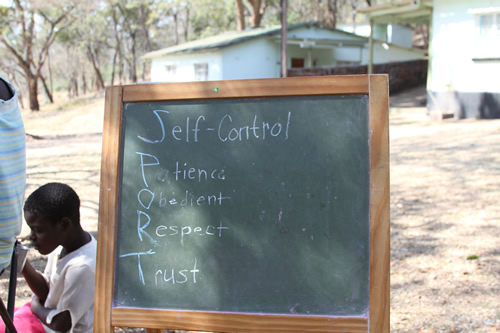Life after prison
Friday, July 27th, 2012 by Elizabeth NyamudaThere is a programme on ZTV, Another Chance, that focuses on reuniting prison inmates and their families. More of like reaching out to the gap that exists between individuals in prison and their families back home. In so doing they ask for forgiveness from their family and the ones they offended when they committed the crimes that saw them sent to jail. I remember in one episode a man who was left with two months of his sentence trying to reach out to his wife and family. When the Another Chance crew visited the wife, she said in the four years her husband had been in prison she had moved on with her life and that to her, the marriage was over. Sadly this is how he learnt his marriage had dissolved. He was devastated and was really worried about where he would go after his release as his wife had abandoned him and his relatives were probably going to shun him.
Many ex-convicts face such scenarios when they finish serving their jail terms. Upon facing such challenges many commit crimes again within a short period of time upon their release and end up going back to prison. Speaking at a Prison Networking meeting organised by Miracle Mission, Elisha Chidombwe of ZACRO (Zimbabwe Association for Crime Prevention and Rehabilitation of the Offender), mentioned that there is no support offered to people who are released from prison. For instance if one stays in Mutare and serves their jail term in Kariba, upon their release there is no clothing, transportation or any other form of support given to them. This encourages them to commit crimes.
At the same meeting an ex-convict said how proud he is of going back to prison not as a prisoner this time, but as Minister of the Word to share his life experiences both in prison, and his life after the jail term. To him receiving Jesus Christ as His Lord and Saviour whilst in the prison cells, and the support he got from his family upon his release, have been the two strongest pillars in his life. He believes himself to be a better man and would like to reach out to inmates serving in Zimbabwe’s prisons under a prison programme organised by Alpha Zimbabwe.
The Alpha for Prisons programme offers courses to introduce inmates to Christian beliefs. Thus there is need for the government, the church, NGOs and the corporate world to help in the support of prisoners both in prison and their life after they serve their jail terms. Through their work in prisons Alpha Zimbabwe realised some of the needs of prisoners are really small. For example prisoners at Karoi prison requested vegetable seeds so they could start their own gardens.











